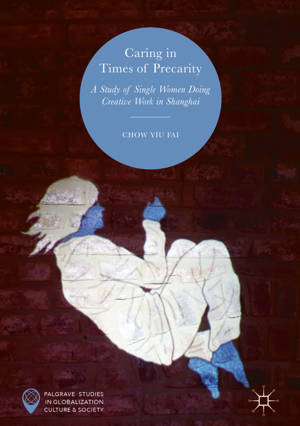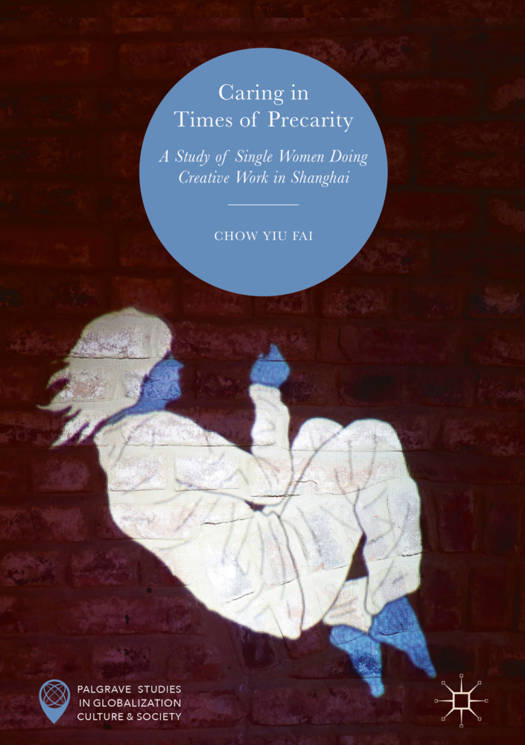
Bedankt voor het vertrouwen het afgelopen jaar! Om jou te bedanken bieden we GRATIS verzending (in België) aan op alles gedurende de hele maand januari.
- Afhalen na 1 uur in een winkel met voorraad
- In januari gratis thuislevering in België
- Ruim aanbod met 7 miljoen producten
Bedankt voor het vertrouwen het afgelopen jaar! Om jou te bedanken bieden we GRATIS verzending (in België) aan op alles gedurende de hele maand januari.
- Afhalen na 1 uur in een winkel met voorraad
- In januari gratis thuislevering in België
- Ruim aanbod met 7 miljoen producten
Zoeken
€ 74,95
+ 149 punten
Omschrijving
Caring in Times of Precarity draws together two key cultural observations: the increase in those living a single life, and the growing attraction of creative careers. Straddling this historical juncture, the book focuses on one particular group of 'precariat': single women in Shanghai in various forms of creative (self-)employment. While negotiating their share of the uncanny creative work ethos, these women also find themselves interpellated as shengnü ('left-over women') in a society configured by a mix of Confucian values, heterosexual ideals, and global images of womanhood. Following these women's professional, social and intimate lives, the book refuses to see their singlehood and creative labour as problematic, and them as victims. It departs from dominant thinking on precarity, which foregrounds and critiques the contemporary need to be flexible, mobile, and spontaneous to the extent of (self-)exploitation, accepting insecurity. The book seeks to understand- empirically and specifically-women's everyday struggles and pleasures. It highlights the up-close, everyday embodied, affective, and subjective experience in a particular Chinese city, with broader, global resonances well beyond China. Exploring the limits of the politics of precarity, the book proposes an ethics of care.
Specificaties
Betrokkenen
- Auteur(s):
- Uitgeverij:
Inhoud
- Aantal bladzijden:
- 345
- Taal:
- Engels
- Reeks:
Eigenschappen
- Productcode (EAN):
- 9783319768977
- Verschijningsdatum:
- 21/01/2019
- Uitvoering:
- Hardcover
- Formaat:
- Genaaid
- Afmetingen:
- 148 mm x 210 mm
- Gewicht:
- 580 g

Alleen bij Standaard Boekhandel
+ 149 punten op je klantenkaart van Standaard Boekhandel
Beoordelingen
We publiceren alleen reviews die voldoen aan de voorwaarden voor reviews. Bekijk onze voorwaarden voor reviews.









